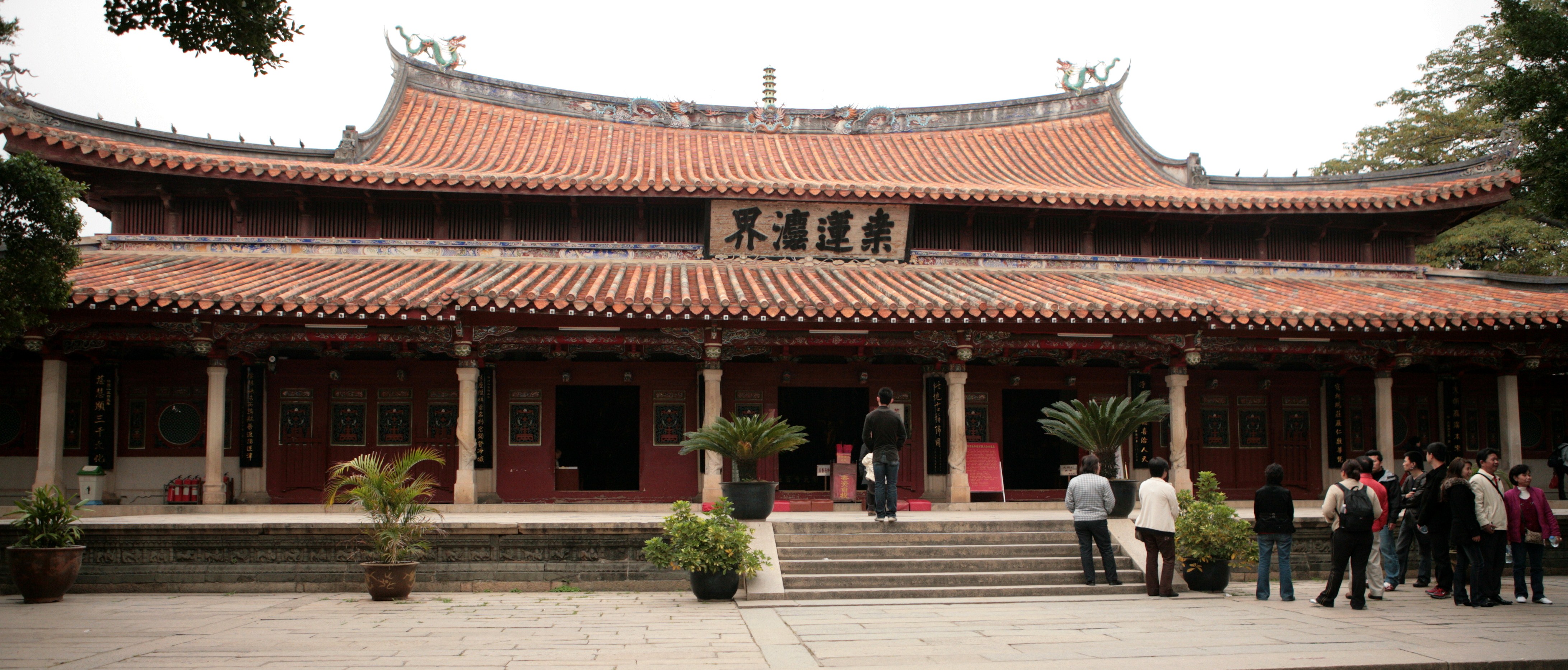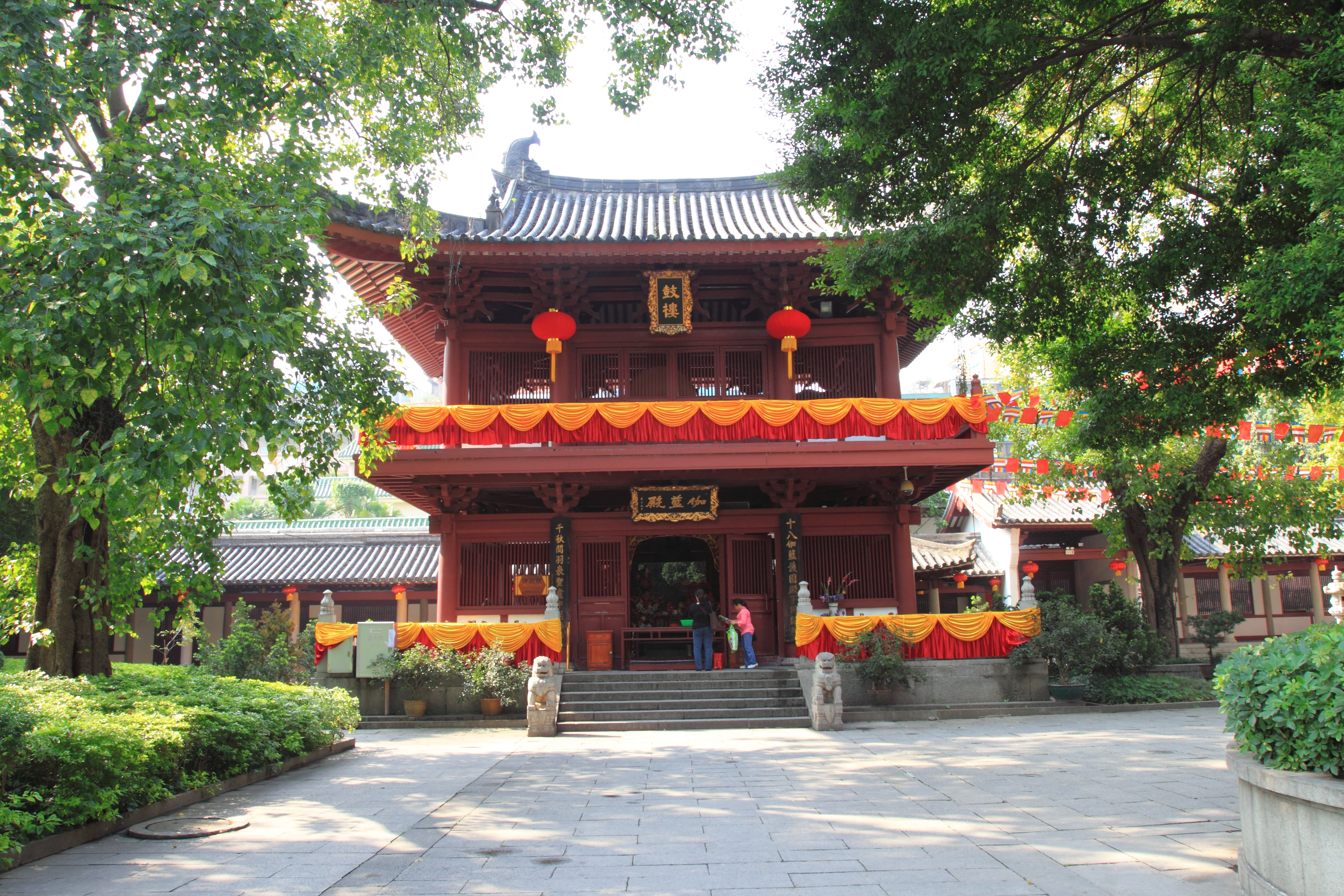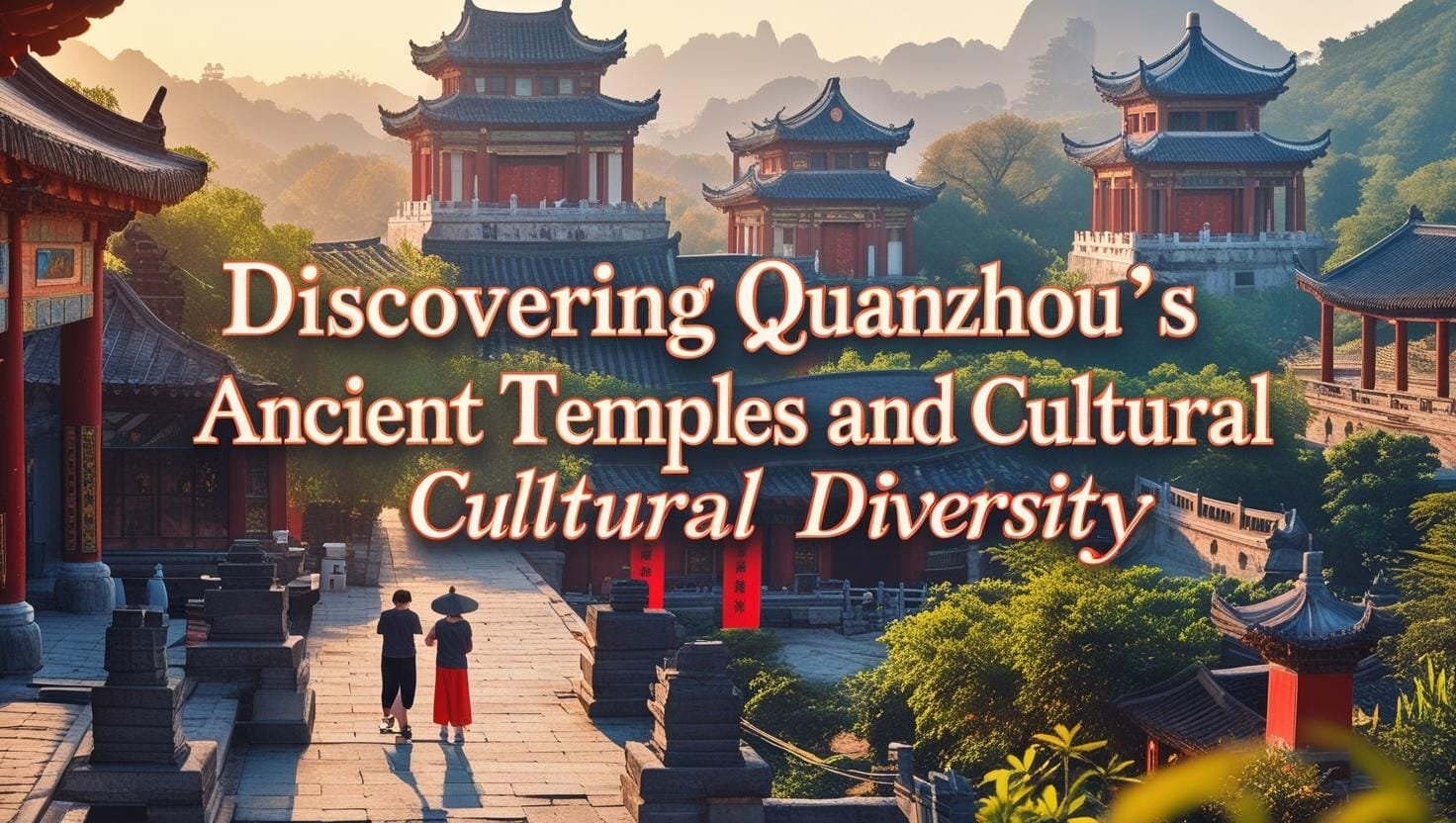# Discovering Quanzhou’s Ancient Temples and Cultural Diversity

Welcome to Quanzhou, a vibrant coastal city in Fujian Province that stands as a testament to China’s rich tapestry of history and culture. If you’re a traveler eager to explore **Quanzhou Ancient Temples** and immerse yourself in **Quanzhou cultural heritage**, you’re in for an unforgettable journey. This city, once a bustling hub on the Maritime Silk Road, offers a unique blend of ancient sites that reflect **China religious history** and showcase **cultural attractions Quanzhou**. From towering pagodas to serene courtyards, these landmarks tell stories of trade, migration, and coexistence that have shaped the soul of China. At Jusha Travel (jusha.travel), we’re passionate about guiding curious explorers like you through the hidden gems of China, providing insights that make your adventures both enriching and effortless. In this **Quanzhou travel guide**, we’ll dive into the must-see temples and cultural experiences that highlight **China cultural tours**, blending historical facts with practical tips to help you plan your visit.
## The Majesty of Kaiyuan Temple: A Window into Quanzhou’s Past

Step into the heart of **Quanzhou Ancient Temples** with a visit to Kaiyuan Temple, one of the most iconic symbols of **Quanzhou cultural heritage**. Built in 685–686 CE during the Tang Dynasty, this sprawling complex is the largest Buddhist temple in Fujian and serves as a living museum of **China religious history**. As you wander its expansive grounds, you’ll encounter a harmonious fusion of architectural styles that tell tales of ancient trade routes and cultural exchanges.
For instance, the temple’s two stone pagodas from the Song Dynasty and the grand Buddha Hall from the 17th century are architectural marvels that draw visitors from around the world. According to sources like the detailed entry on [Kaiyuan Temple (Quanzhou)](https://en.wikipedia.org/wiki/Kaiyuan_Temple_(Quanzhou)), these structures were influenced by international merchants, including those from South India. The granite pillars and statues in the Mahavira Hall, for example, reflect Tamil Hindu elements, a reminder of the 13th-century traders who settled here and left an indelible mark on the site. As a traveler, don’t miss the opportunity to explore the sutra library and the Hall of Patriarchs, where relics like the mummy of a Tang-era Indian monk are preserved. A practical tip for your **China cultural tours**: Visit early in the morning to avoid crowds and participate in a guided tour for deeper insights. Quanzhou’s temperate climate makes it ideal for outdoor exploration, but remember to wear comfortable shoes for the uneven paths. This site isn’t just about history—it’s a place where you can feel the pulse of **Quanzhou cultural heritage** through ongoing rituals and community events, making it a perfect stop for culture enthusiasts.
## Qingjing Mosque: Bridging Faiths in a Multicultural City

No exploration of **Quanzhou Ancient Temples** would be complete without delving into the Qingjing Mosque, a stunning example of how **China religious history** has intertwined with global influences. Constructed in 1009, this is the oldest Arab-style mosque in China, standing as a beacon of the city’s role as a crossroads on the Maritime Silk Road. Its architecture is a beautiful fusion of Chinese and Islamic designs, with elegant halls and courtyards that evoke a sense of peaceful coexistence.
Detailed accounts from resources such as [Discovering Quanzhou: A Cultural Odyssey Through Temples and Museums](https://www.peek.com/quanzhou-fujian-china/r0km99/discovering-quanzhou-a-cultural-odyssey-through-temples-and-museums/ar0nb87j5) highlight how Arabic traders shaped this site, turning it into a hub for Muslim communities. The mosque’s minarets and prayer halls blend seamlessly with local elements, illustrating the adaptability and harmony that define **cultural attractions Quanzhou**. It’s fascinating to see how these structures have endured, symbolizing the shared heritage between China and the Islamic world. For practical advice on your **Quanzhou travel guide**, consider combining a visit to Qingjing with nearby sites for a full-day itinerary. If you’re traveling with family, note that the mosque offers a serene environment for reflection, and guided tours often include stories of daily life for the Muslim community here. Food lovers might appreciate pairing your visit with a stop at local street stalls for halal Fujian snacks, tying into Jusha Travel’s focus on China’s diverse culinary scene. This blend of history and everyday culture makes Qingjing an essential part of any **China cultural tours**, offering insights into how religious sites foster community in modern times.
## Hindu Influences and Tamil Temples: Quanzhou’s Hidden Treasures

Quanzhou’s allure extends beyond Buddhist and Islamic sites to include fascinating Hindu elements, making it a standout destination for **China cultural tours**. The presence of Tamil temples and artifacts within places like Kaiyuan Temple underscores the city’s multicultural roots, shaped by medieval merchants from South India. As explored in articles such as [Tamil Temples in Quanzhou by Siddhant Nair](), these influences date back to the 13th century, when traders built structures dedicated to deities like Vishnu and Shiva.
One highlight is the stone carvings and fragments of a Vishnu temple, crafted in South Indian styles using local granite. This fusion exemplifies **Quanzhou cultural heritage** and adds a layer of diversity to **cultural attractions Quanzhou**. Imagine standing amid these relics, which are distributed across five key sites, and feeling the echoes of ancient trade networks that connected China with India.
To enhance your experience, use technology to your advantage—download apps that provide augmented reality tours of these sites, aligning with Jusha Travel’s interest in China’s tech innovations. A tip for travelers: Check for seasonal festivals, where you might witness performances that blend Hindu and Chinese traditions. This section of your **Quanzhou travel guide** emphasizes how these hidden treasures offer a deeper understanding of **China religious history**, encouraging visitors to appreciate the city’s role as a melting pot of faiths.
## Living Traditions: Quanzhou’s Ongoing Cultural Legacy
Finally, Quanzhou’s **Quanzhou Ancient Temples** aren’t relics of the past—they’re vibrant centers of community life that continue to evolve. As noted in resources like [Quanzhou Kaiyuan Buddhist Monastery in China]() and [Exploring Quanzhou: A Cultural Odyssey Through Time](https://www.peek.com/quanzhou-fujian-china/r0km99/exploring-quanzhou-a-cultural-odyssey-through-time/ar0nb8dvw), sites such as Kaiyuan and Qingjing host museums with ancient texts, sculptures, and relics that support education and scholarship.
This ongoing significance highlights **Quanzhou cultural heritage** as a dynamic force, where Buddhist, Hindu, and Islamic traditions coexist. Interesting fact: Quanzhou’s festivals often feature fusion cuisine, like spicy Fujian noodles with Indian spices, reflecting the city’s food diversity. For tech-savvy travelers, interactive exhibits at these sites use QR codes for virtual tours, blending tradition with modern innovation.
In your **Quanzhou travel guide**, prioritize attending a local ceremony or workshop to engage with these living traditions. Whether you’re a solo adventurer or part of a group, these experiences will leave you inspired by **China cultural tours** and the city’s ability to adapt while honoring its roots.
In conclusion, discovering **Quanzhou Ancient Temples** and its cultural diversity offers a profound glimpse into **Quanzhou cultural heritage**, **China religious history**, and the enchanting **cultural attractions Quanzhou** that define this corner of China. From the architectural wonders of Kaiyuan Temple to the harmonious blends at Qingjing Mosque and the hidden Hindu influences, these sites embody the spirit of exchange that has shaped the nation. Here at Jusha Travel (jusha.travel), we love sharing tips to make your China journey unforgettable, and we hope this guide inspires you to explore more. What are your favorite cultural spots in Quanzhou? Share your thoughts in the comments below, visit jusha.travel for more in-depth **China cultural tours**, or check out our related articles on other ancient Chinese destinations. Safe travels, and let’s keep the adventure alive!

